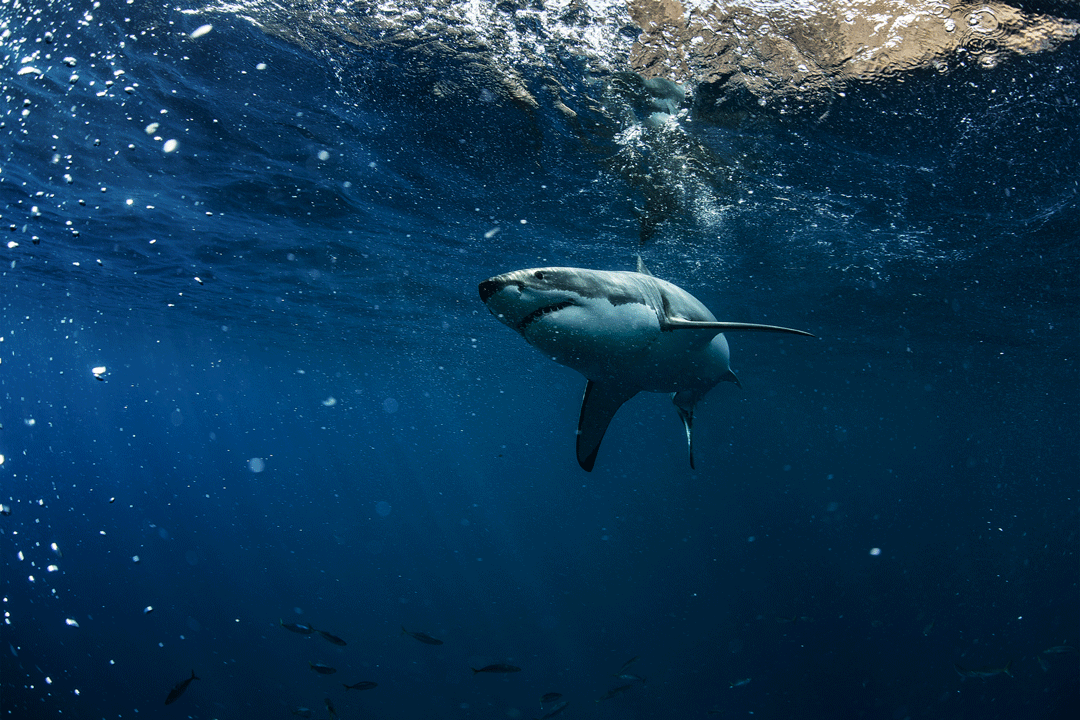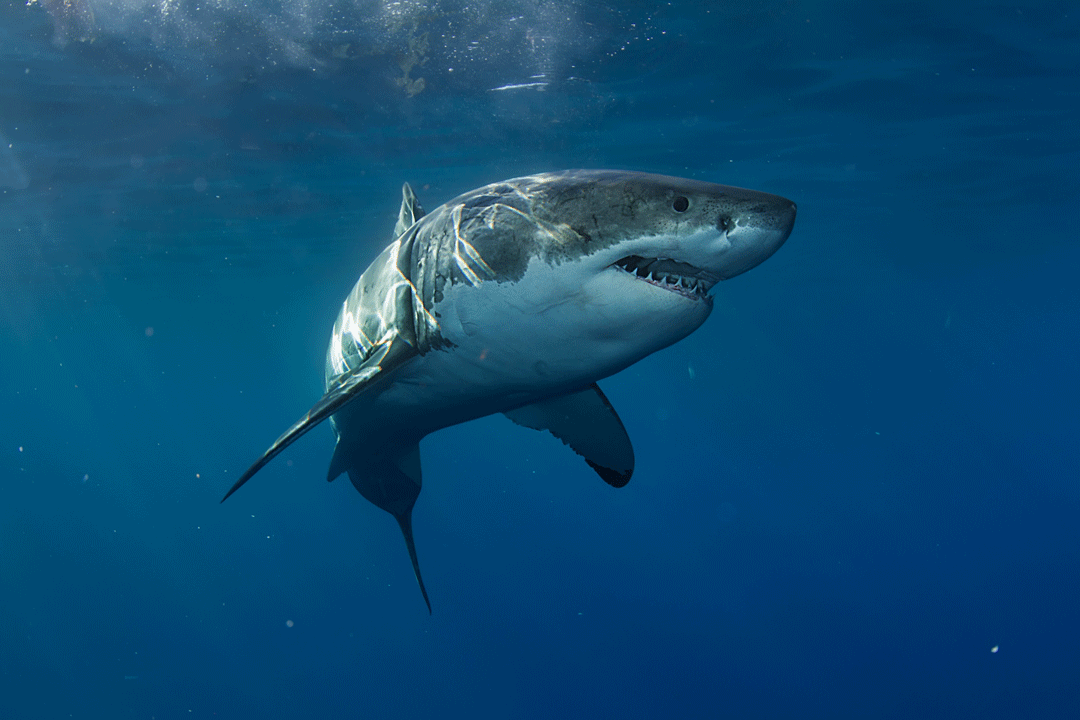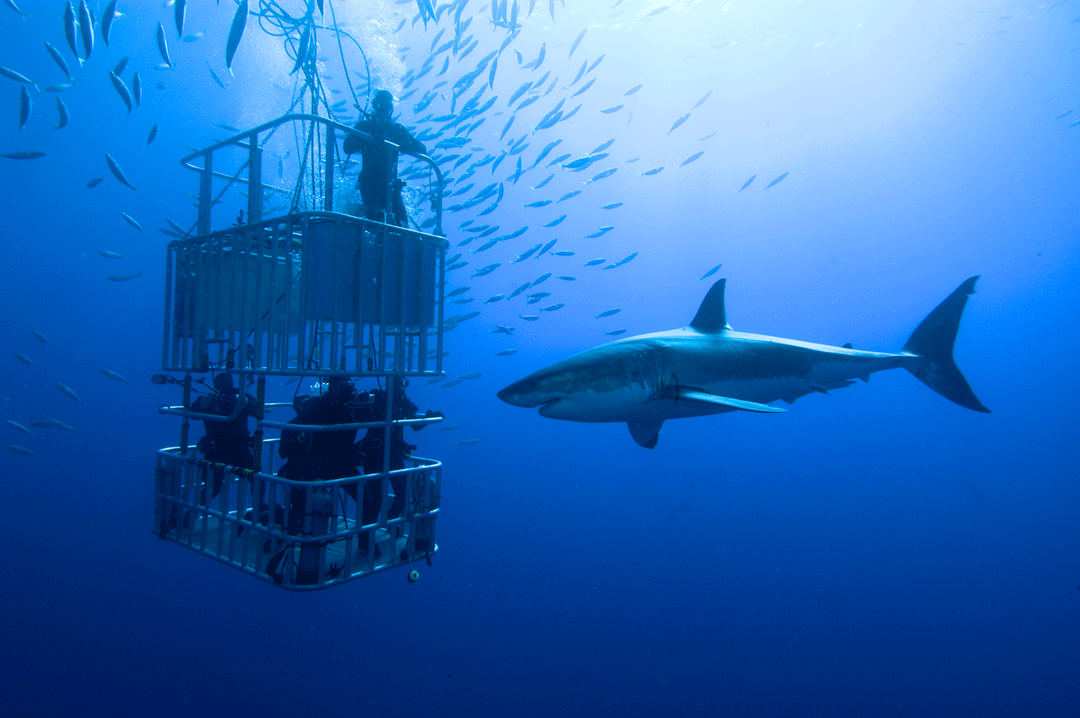Where to from here? Future directions for white shark research
Charlie Huveneers and a host of co-authors have just published a new paper in Frontiers in Marine Science. Its purpose? To pool the knowledge of 43 white shark experts, and identify the critical research questions that need answering in white shark science.
There have been many advances in white shark science in recent years, both in the kind of technology that allows us to answer questions and in the depth of our understanding of these tricky-to-study sharks. However, there are still some gaps in our knowledge.

Photo © Willyam Bradberry | Shutterstock
Resources for research (like funding, time, labour) are often limited, which means that crucial issues need to be identified. These become the primary focus where effort and resources can be channelled.
White sharks themselves remain essential to understand and monitor because they are naturally low in abundance, and play an important role in keeping marine ecosystems healthy.
Managers and scientists agree with the research questions identified in this survey. The experts actually identified 21 themes, of which 10 were considered a priority. Additionally, the need to develop minimally invasive research tools and methods was discussed as necessary. The ongoing debate around ethics keeps scientists on their toes and the welfare of the animals they study top-of-mind.

Photo © Willyam Bradberry | Shutterstock
What are the Top 10 priority research questions they’ve identified? Here they are, extracted from the paper itself. You can follow the link to this reference at the end of the article:
1. What is the size and status of white shark populations?
2. What are the key parameters necessary to quantify the reproductive output of white sharks?
3. What are the mechanisms driving the distribution, movements, and migrations of white sharks?
4. What are the critical habitats of white sharks and how do they change with ontogeny?
5. Where and how frequent are white sharks outside their key known hotspots?
6. How can we improve our understanding of white shark diet to infer drivers of movements and habitat preferences and flexibility in their trophic role?
7. How will climate change impact white shark populations?
8. How can we quantify and alleviate current threats to adequately manage white sharks and ensure their conservation?
9. Can we reliably assess and significantly reduce human-shark interactions, and influence public perception of shark bite risks?
10. What are the socio-economic benefits and ecological effects of wildlife tourism?

Photo © Stefan Pircher | Shutterstock
In the paper’s conclusion, the lead author Charlie writes the following: “At a minimum, we hope that this article will lead to researchers thinking about the various questions we have identified, about ways to answer them, encourage greater collaborations, and that the questions and themes described in this article will provide a roadmap for future research on white sharks that will accelerate progress”.
***Reference: Meekan, M., Queiroz, N., Schofield, G., Huveneers, C., Megafauna, M., Huveneers, C., Apps, K., Becerril-García, E.E., Bruce, B., Butcher, P.A. and Carlisle, A.B., 2018. Future Research Directions on the “Elusive” White Shark. Frontiers in Marine Science 5: 1-15
Read the full paper here.
